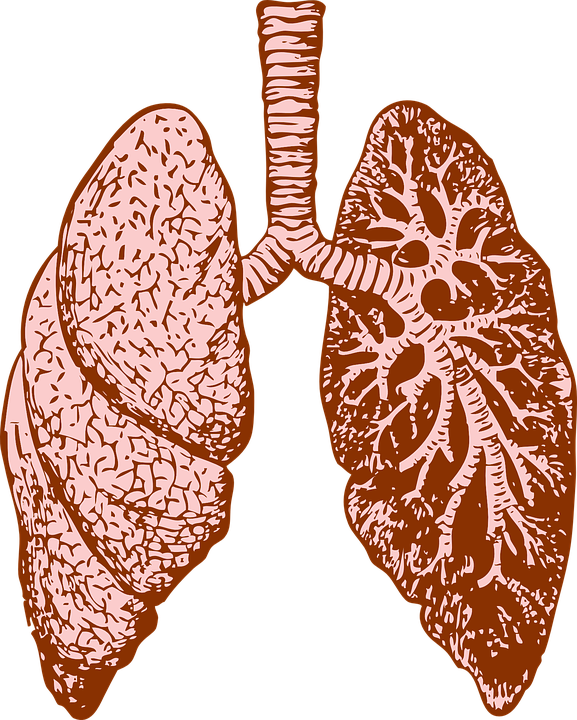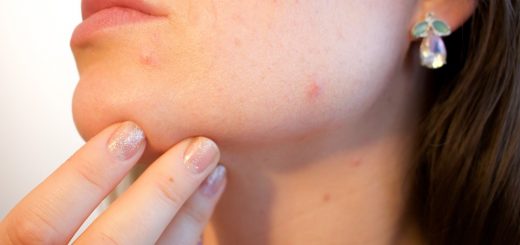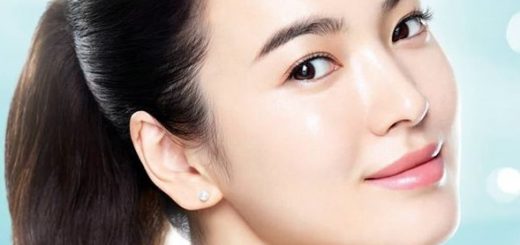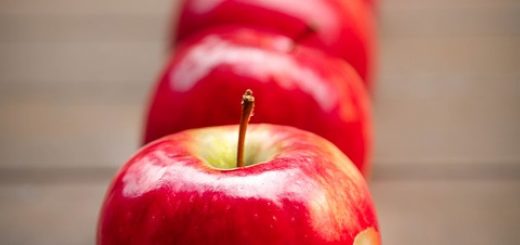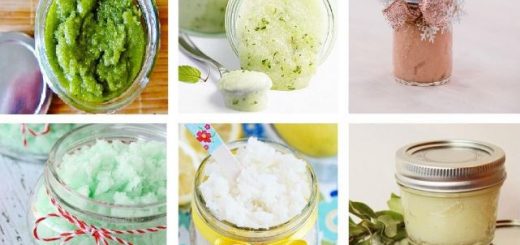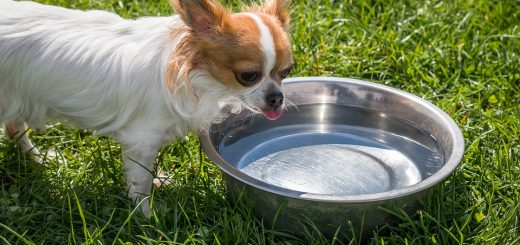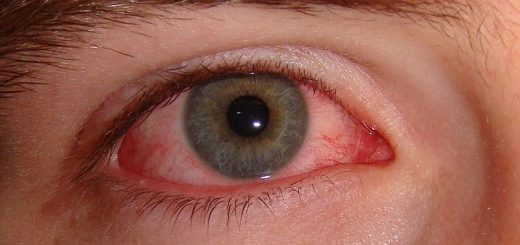34 Home Remedies for Headaches
Headaches are common ailments and it’s a bit of a shocker that this wasn’t the first article posted to the site! Nearly everyone has experienced a headache at one point or another and most people will have one again. That’s why this article is going to cover the many home remedies that can be used to both prevent and treat a common headache.
Causes
Headaches can be caused by what seems an uncountable number of factors. They are most often caused by another health issue. It can be something as serious as having high blood pressure or it could be due to stress or anxiety. Many ailments, like the flu, also have headaches as a symptom.
If a headache is not caused by underlying health issues, then it is likely caused by a person becoming overstimulated or stressed out, either mentally or physically. This happens when a person is surrounded by many loud noises, when a person has their neck or head at an odd angle for too long, or when a person has strained their eyes by reading or looking at a screen for too long.
Some of the other common causes of headaches are listed below.
- Allergies
- Anxiety
- Brain freeze
- Common cold
- Concussion
- Dehydration
- Depression
- Eye strain
- Fatigue
- Hangover
- Hay fever
- Insomnia
- Overuse of painkillers
- Sinus infections
- Stuffy/runny nose
Types of Headaches
There are several types of headaches. While many of these types can be cured with the same set of home remedies, they all come with different symptoms. Most of the types of headaches are not much to worry about, but others can point to signs of a severe health issue.
Cluster
Cluster headaches are one of the most common types of headaches. These headaches are usually located on the side of the head, near the eyes. It is not likely to feel pain on both sides of the head at once when you have a cluster headache. The pain may feel like a stabbing or burning sensation. Cluster headaches can last anywhere from fifteen minutes to three hours at a time. They are also likely to come in spurts, in which people have a few cluster headaches in a day, week, or month, and they go a long period without having any.
Migraines
Migraines are a severe type of a headache, but they do not usually point to underlying health issues. The most common symptoms of a migraine, other than pain in the head (usually one-sided) include blurry vision, dizziness, nausea and/or vomiting. Migraine headaches usually last for a few hours at a time.
Rebound
Rebound headaches are a side effect from using painkillers too often. This headache comes after painkillers have been used to treat another headache or other pain. Some symptoms of rebound headaches include head and neck pain, fatigue, and a stuffy nose. These headaches are usually mild but can last all day.
Sinus
Sinus headaches are caused by colds, the flu, allergies, or hay fever. When the sinuses are inflamed or irritated, they produced more mucus, which can result in a stuffy or a runny nose. If the mucus cannot find a way out of the body, it can result in a sinus headache. These headaches often last for as long as the other symptoms.
Tension
Tension headaches are the most common type of headache. These headaches are mild but are usually felt on both sides of the head at once. Some people may also experience neck pain. These headaches vary widely in length, as they can last for a few minutes or a few days.
Thunderclap
Thunderclap headaches are extremely rare but also extremely serious. These headaches are extremely painful. They rarely last for more than a few minutes at a time. If you get a thunderclap headache, you should see a doctor right away instead of using home remedies, as thunderclap headaches may point to a more serious brain injury or ailment.
Home Remedies for Headaches
-
Massage
Massaging the painful points, whether it be on your head or neck, can help to relieve headaches. One of the best parts is that you don’t need to be a professional masseuse to make this home remedy work. You or a friend can rub your temples in a circular motion. Do this for as long as it takes to relieve your headache.
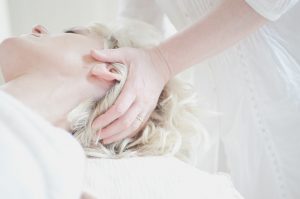
Take time to rub the temples and any other painful areas
-
Shower or Bathe
Taking a hot shower or bath is a great way to relieve tension and sinus headaches, but for different reasons. Baths and showers tend to be relaxing, which is great for people who have headaches due to stress. Adding a few drops of lavender oil to a bath can make it even more relaxing.
Both hot baths and showers also work for sinus headaches because they produce steam. Inhaling steam is a great way to loosen mucus that causes sinus headaches. To make a hot bath even more effective, add in a few drops of peppermint essential oil to the bath.
-
Relax
Tension headaches can be caused by stress. Anxiety can also be a cause of headaches. Because of both of these causes, simply relaxing is a great way to make a headache vanish. Try listening to soft music, reading a book you like or meditating.
-
Painkillers
While painkillers are not a “natural” home remedy, they are a cheap and simple home remedy. Simply take painkillers as directed on the packaging to use this home remedy. However, do not use this home remedy if you think you have a rebound headache. While the pills will cure it, the headache is likely to come back and be worse than before.
-
Allergy Medication
Since sinus headaches can be caused by allergies, more so pollen, dander, and dust allergies than food allergies, taking allergy medication can work to help both a sinus headache and the other symptoms which caused it. Like any other medication, make sure to read the packaging and take it only as directed.
-
Reduce Alcohol Intake
Drinking too much alcohol can lead to hangovers, which can lead to headaches. One way to prevent headaches before they even happen is to simply reduce your alcohol intake. Also, drinking water in between alcoholic drinks can also reduce the chance that you will get a hangover later.

Drinking juice and other non-alcoholic beverages can also help to reduce hangovers
-
Get Hydrated
Hangovers are results of dehydration; dehydration alone or with alcohol can both lead to headaches. The best way to combat this is to drink more water. Adults should drink about eight to ten glasses of water a day to be optimally hydrated.
-
Limit Screen Time
Eye strain is another leading cause of headaches. One major contributor to eye strain is using something with a screen (phone, computer, or TV) for too long. If you can, limit your daily screen time. If you need a computer for work and cannot reduce your screen time, try to take breaks from looking at the screen. Taking a break for a few minutes each hour is a great way to prevent and treat eye strain.
-
Wear Glasses
Eyeglasses are prescribed for a reason, so wear them! Wearing your glasses is another great way to cut down on eye strain. If you do not have prescription glasses, but notice your eyes hurt when you are working on a computer, reading, or writing, buy some reading glasses to improve your vision. If you do not like wearing glasses, opt for contact lenses instead.
-
Get More Sleep
Both fatigue and insomnia can lead to headaches; trying to get more sleep can help with both of these causes. Try to get around eight hours of sleep each night. If, for whatever reason, you cannot manage this, try to take naps during the day to make up for lost time.
-
Less Caffeine
While caffeine in itself is not likely to cause headaches, caffeine withdrawal (if someone has a caffeine addiction) can cause headaches. To prevent this from happening, try drinking less caffeine. Cutting soda and energy drinks from your diet entirely is a good place to begin. If you are going to continue drinking caffeinated beverages, get your caffeine from natural sources, like tea, coffee, or hot chocolate.

Drinking caffeine in moderation may help some people but hurt others
-
Cold Compress
Some people like to use a hot shower or bath to remedy their headaches, while others may find more luck by using cold. To use a cold compress, you can either wrap a towel around ice or a cold pack or soak a cloth in cold water. Place the cold compress on the back of your neck to get relief. Add rosemary essential oil to the compress to make it even more effective.
-
Magnesium
Magnesium is a natural mineral that can be found in the human body and in many food sources. When a person does not have enough magnesium in their body, they are more likely to experience headaches. To add more of this wonderful mineral to your body, you can either take magnesium supplements (as directed) or eat foods that are naturally rich in magnesium. Some of these foods include leafy green vegetables, sunflower seeds, bananas, broccoli, beans, fish, and nuts.
-
Avoid Histamines
While histamines are found in the body naturally, not everyone’s body uses them correctly. Most allergy medicines contain antihistamines, which help with sinus headaches. Histamines are also found naturally in foods, which should be avoided if you have a history of sinus headaches. Some of these foods include fermented foods (pickles, some cheeses), alcohol, and cured/smoked meats.
-
Lavender Essential Oil
As mentioned earlier in this article, lavender essential oil is great for providing people with a sense of calm. If you have a tension headache, using lavender essential oil may be able to help. Add this oil to your bath or inhale the scent. Another great way to use it is to mix two drops of lavender essential oils in a tablespoon of coconut oil. Rub this oil into your temples to get relief.
-
Coenzyme Q10
Coenzyme Q10 is another naturally occurring enzyme found in the body. If a person does not have enough of this enzyme in their body, then they may get a headache. This is especially true of people who often suffer from migraines. One way to take in more of this enzyme is to take supplement pills (as directed). The enzyme is also naturally found in beef, chicken, fish, nuts, beans, cauliflower, and oranges.
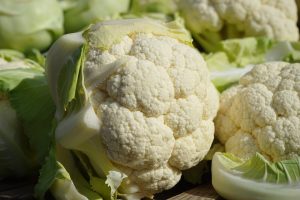
Cauliflower tastes great roasted or steamed
-
Avoid Triggers
Sometimes people’s headaches and migraines are caused by a trigger. Triggers can be anything from a certain kind of food to a smell. One of the best ways to discover if a trigger is causing your headache is to write down what you were doing/eating/smelling right before a headache struck. If you notice a pattern, avoid that thing to reduce the occurrence of headaches and migraines.
-
Avoid Nitrates and Nitrites
Both nitrates and nitrites are an ingredient that is often used to preserve foods, like hot dogs and lunch meats. Sometimes, these preservatives can trigger headaches as they expand blood vessels in the head. Avoid foods containing these preservatives if you think they may be causing your headache.
-
Peppermint Essential Oils
Peppermint essential oil is great to use if you have a sinus headache. This is because the strong smell of peppermint oil can help to open nasal passages, which can help mucus to leave the body. You can either add peppermint oil to a boiling pot of water and breath in the steam or add peppermint essential oil to a diffuser.
-
Yoga
Yoga is a calming exercise that can be useful for easing tension headaches. When people have headaches, they are not likely to want to be active, but getting your body moving can distract the mind from a headache. Try light yoga the next time you have a headache to see if it works for you.
-
Exercise
If yoga isn’t your cup of tea, then try doing a different type of light exercising. While other types of exercise might not be as relaxing as yoga, they can still help to reduce headache pain. The next time you have a headache, try some light exercises to see if it works for you.

Intense workouts are more likely to produce are more likely to produce weight loss results, but they may increase joint pain
-
Chamomile Tea
One type of tea that can help to reduce headaches is chamomile tea. This works because the tea helps to relax the mind and body. The next time you have a tension headache, drink a cup of chamomile tea.
-
Ginger Tea
Ginger tea can help to reduce inflammation; sometimes the cause of a headache is due to blood vessel inflammation. Drink a cup of ginger tea the next time you have any type of a headache.
-
Rosemary
The rosemary herb, like ginger, also has anti-inflammatory properties. It also works as a natural pain-reliever. To use this herb, you can make a tea out of it, use rosemary essential oil, or add rosemary to your meals.
-
Eucalyptus Essential Oil
Eucalyptus essential oil is great to use if you have a sinus headache. Like peppermint essential oil, eucalyptus helps to clear out the sinuses. The best way to use this is to inhale the scent, either from a diffuser or steam.
-
Find a Dark Quiet Spot
Sometimes headaches are simply caused by bright lights or loud noises. Because of this, the easiest way to get rid of headaches caused by either of these is to go somewhere quiet and dark. Stay in a dark quiet place until your headache is gone.
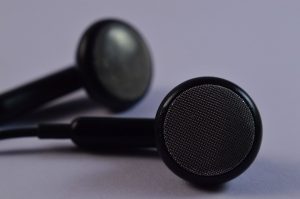
Listening to one sound, like a song, through ear phones can be better than listening to many loud noises if you cannot find a quiet spot
-
Vitamin B2
People who often experience migraines may be able to prevent future headaches by taking in more vitamin B2. This vitamin is naturally found in dairy products, poultry, and fish. Add more of these foods to your diet to reduce the likelihood of getting another migraine. If you are a vegan, you can instead take vitamin B2 supplements as directed.
-
Butterbur Extract
Butterbur extract is said to prevent migraines. If you feel a migraine coming on, or if you have just indulged in one of your triggers, use butterbur extract (as directed on the packaging) to prevent a migraine.
-
Cinnamon
Cinnamon is an all-natural spice that helps to reduce inflammation. There are a couple of different ways to use it to reduce headache pain. The easiest way to use it is to add it to your meals or drink cinnamon tea.
To make an effective cinnamon paste, you can mix a tablespoon of cinnamon with enough water to make a paste. Massage this paste into your temples for a few minutes. After half an hour, rinse off the paste. Do this whenever you have a headache.
-
Cloves
Cloves are another natural spice that can help reduce headache pain. The best way to use cloves to reduce a headache is to drink clove tea or inhale the scent of cloves. Using clove-scented candles, adding clove essential oil to a diffuser, or simply smelling fresh cloves is a great way to inhale the scent.
-
Basil
Basil is a helpful green herb that can help to treat a tension headache. The best way to use this herb is to inhale the scent, like with cloves. Use this herb in any of the same ways that you would use cloves.
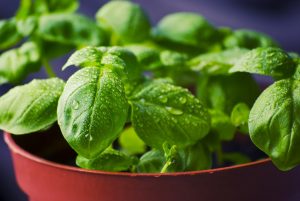
Fresh basil leaves
-
Apple Cider Vinegar
Apple cider vinegar is mentioned in many of our home remedy articles because it is a natural cure-all, so it’s only natural that we add it to this article. Drinking apple cider vinegar, or inhaling its scent, can help to restore the body to its natural pH level. When the body’s pH level is off, it can cause headaches.
To drink apple cider vinegar, mix equal parts water and apple cider vinegar. Next, add two tablespoons of honey. Drink this every morning to prevent headaches or drink it when you feel a headache coming on to end it early.
To inhale apple cider vinegar’s scent, add equal parts water and apple cider vinegar to a pot. Boil the mixture and inhale the steam. Do this until the water is boiled away or until a headache is gone. This can help all headaches, but it is especially useful for sinus headaches.
-
Thyme Essential Oil
Thyme essential oil is another of the many essential oils that can help to relieve headaches. The best way to use this home remedy is to mix two drops of the oil with another carrier oil, like jojoba oil. Rub this mixture into your temples for a few minutes. The little massage will also help to relieve a headache.
-
Apples
Like apple cider vinegar, plain apples can also help to balance the body’s pH levels. As a bonus, it tastes better than apple cider vinegar. Simply eat an apple or drink a cup of 100% apple juice the next time you have a headache to cure it.
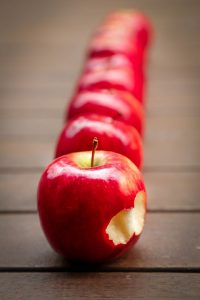
Any type of apple should do the trick for this home remedy
Which of these home remedies are you most likely to try the next time you have a headache? Comment below!
References
https://www.medicalnewstoday.com/articles/73936.php
https://www.medicalnewstoday.com/articles/319478.php?sr
https://www.webmd.com/migraines-headaches/sinus-headaches#1
https://www.healthline.com/nutrition/headache-remedies
https://www.huffingtonpost.com.au/2017/07/10/what-foods-contain-magnesium_a_23024245/
https://www.healthline.com/nutrition/coenzyme-q10
https://www.webmd.com/migraines-headaches/ss/slideshow-home-remedies-for-migraines
https://food.ndtv.com/health/10-natural-home-remedies-for-headaches-that-actually-work-1215616

